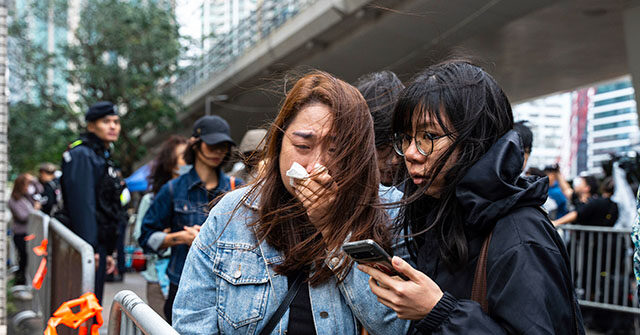On Tuesday, a Hong Kong court sentenced 45 pro-democracy activists and former activists to prison terms of up to ten years, marking a significant episode under the authoritarian “national security law” imposed by Beijing in the aftermath of the city’s pro-democracy protests in 2019. The defendants were prosecuted for orchestrating an unofficial primary election in July 2020 aimed at selecting candidates for the Legislative Council (LegCo) following the disqualification of numerous pro-democracy candidates by the Beijing-aligned city government. The government had initially postponed the election, citing rising COVID-19 cases, but critics argued that the delay was politically motivated due to fears of an embarrassing defeat at the polls, even after disqualifying key opposition figures. The controversial law, which criminalizes dissent and opposition, has been instrumental in stifling free political expression in Hong Kong.
The 2020 primaries, organized by a group led by legal scholar Benny Tai, gathered approximately 600,000 votes despite governmental warnings of their illegality. Beijing officials characterized the event as part of a broader “color revolution,” claiming it was an attempt to destabilize the Hong Kong government with foreign intervention. In response to mounting criticism, the Chinese government, in May 2020, enacted a national security law that effectively abolished many of the region’s previously guaranteed civil liberties, framing dissent as sedition. The prosecution accused the defendants of disrupting the Hong Kong government and attempting to remove then-leader Carrie Lam from power. The harsh sentences handed down in this case illustrate the increasing severity with which the authorities are treating dissent under this law.
Among those sentenced, Benny Tai received the longest term, with ten years in prison, while others were granted reduced sentences based on claims of ignorance regarding the illegality of the primary. The court characterized the primary as an attempt to create a “constitutional crisis” and dismissed arguments that the event was merely academic. Judges asserted that the defendants had strived to present the primary as a legitimate electoral exercise, disregarding that the primary was non-binding. Activist Gwyneth Ho articulated the sentiments shared by many defendants, criticizing their sentences as a consequence of their unwillingness to conspire in manipulated electoral processes, and lamented a broader crackdown against hope for democracy in Hong Kong.
The sentencing elicited strong reactions internationally, with significant condemnation from the U.S. State Department, which described the trials as unjust and cited the peaceful political activities of the defendants as being protected under Hong Kong’s Basic Law. They called for the immediate and unconditional release of the 45 sentenced individuals and decried the erosion of judicial independence in Hong Kong. In a related move, the Department indicated plans to impose new visa restrictions on officials involved in implementing the National Security Law. These developments signal a deepening crisis in Hong Kong, as many are becoming increasingly concerned about the implications of such severe government actions on civil liberties and political discourse.
As most defendants have been held in pretrial detention for over three years, the trials have raised alarms about the judicial process itself, with Human Rights Watch highlighting numerous violations of international standards during the proceedings. This included lengthy pretrial detention, lack of jury trials, vague charges, and denial of consular services for relevant defendants. The criticism is further underscored by observations that the National Security Law has turned the Legislative Council into a mere instrument for pro-government agendas by precluding opposition voices, thereby altering the political landscape of Hong Kong fundamentally.
In contrast, the Chinese Foreign Ministry defended the trial’s integrity, asserting that it was necessary to uphold national security and counter activities deemed harmful to it. Officials categorically rejected claims of interference from Western nations and painted the judiciary’s actions as compliant with relevant legal frameworks. The divisions between Hong Kong’s pro-democracy advocates and the Beijing-supported government reflect a broader struggle over the region’s identity and governance, with escalating legal repercussions for those who challenge the status quo. Ultimately, this case and the shared sentiments of the defendants encapsulate the dire state of political freedom in Hong Kong, illustrating the challenges faced by those who continue to fight for democratic principles under increasingly repressive conditions.

